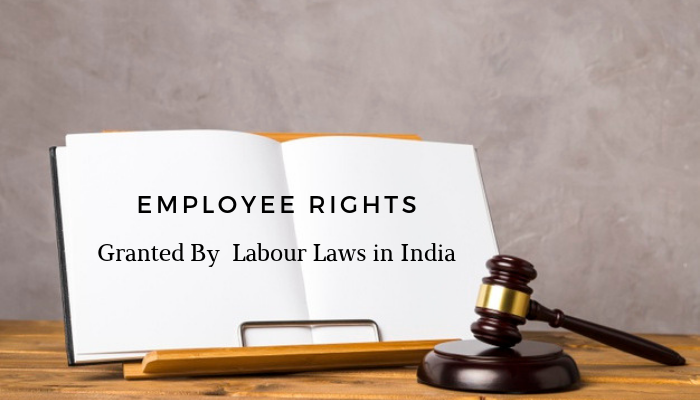Under the Indian labour laws there are a few specific rights for the employees that will protect then from being exploited or deprived. You can some to know about all these laws from the labour law consultants in India. There are several terms of employment that you need to know as well as the laws that govern the employee rights so that no one is exploited and is at a risk of facing legal consequences. Various laws such as Payments of Bonus Act, Payment of Gratuity Act, Equal Remuneration Act, Employees Provident Fund and Miscellaneous Provisions Act, Maternity Benefit Act, Employees’ State Insurance Act and more make the labor laws. With so many different categories involved, things are bound to get complicated.
Employment agreement
There are different rights for the employees that you need to ensure. A qualified and professional labour law consultant will help you in this regard so that you not miss out on anything and face legal consequences. According to the labor law the employees have right to safe working conditions and place having the basic amenities. They also have the right to appropriate working hours, wages, leaves any assured incentive and much more. All these rights are protected under the law. Most importantly, they have the right to an employment agreement that will detail out the terms of the employment, compensation, designation, place of work, work hours and much more.
Maternity benefit
According to the Maternity Benefit Act, 1961, prenatal and postnatal benefits are provided to the female employees in an establishment. After the amendments made in 2017, the duration of paid leave for any pregnant employee has been raised to 26 weeks and that includes eight weeks of postnatal paid leaves. However, in case of any complicated pregnancy, delivery, medical termination, or premature birth, the female employees may be entitled to a month’s paid leave. In case of a tubectomy procedure, an additional paid leave for only two weeks is provided. According to the law no pregnant female employees can be discharged or dismissed for such absence or employed within six weeks of delivery or miscarriage. The labour law firms in India can fight for their maternity benefits if dismissed.
Provident Fund
According to the employment law, all employees are entitled for provident fund. This aspect is looked after by the Employee Provident Fund Organization, EPFO. This is a national organization that manages retirement benefits scheme for every salaried employee. Ideally, any organization having more than 20 employees is legally needed to register with the EPFO. However, any employee can opt out of the scheme but they will have to do it at the beginning of their career. The PF amount cannot be withdrawn at will as the law limits the withdrawal amount as well as the term of years in service. Ideally both employer and employee must contribute 12 % of the basic salary to the fund. If the employer’s shares is not paid or deducted from the employee’s salary, the employer can be taken to PF Appellate Tribunal for redressal.
About gratuity
According to the Payment of Gratuity Act, 1972 the employees are provided with a statutory right in the form of gratuity for being in service for more than five years. This is actually a type of retirement benefit given to the employee. This is a lump sum payment made to the employee as gesture of gratitude for their service to the company. This amount however increases with the number of years in service and with increment in salary.
Fair and timely
Employees join any firm to get paid for their service. This remuneration is also governed by the law so that no employee is underpaid and exploited. According to the Article 39(d) of the Constitution every employee is entitled to get an equal pay for equal work. The remuneration factor is governed by different laws such as The Equal Remuneration Act, The Payment of Wages Act, and others. Any variance can be disputed with the help of the labor lawyers in India. You can approach the Labor Commissioner or even file a civil suit against the employer for arrears in salary. As per law, an employee is entitled to receive nothing less that the legal minimum wages.
Also Read: Falsely accused of criminal charges


























